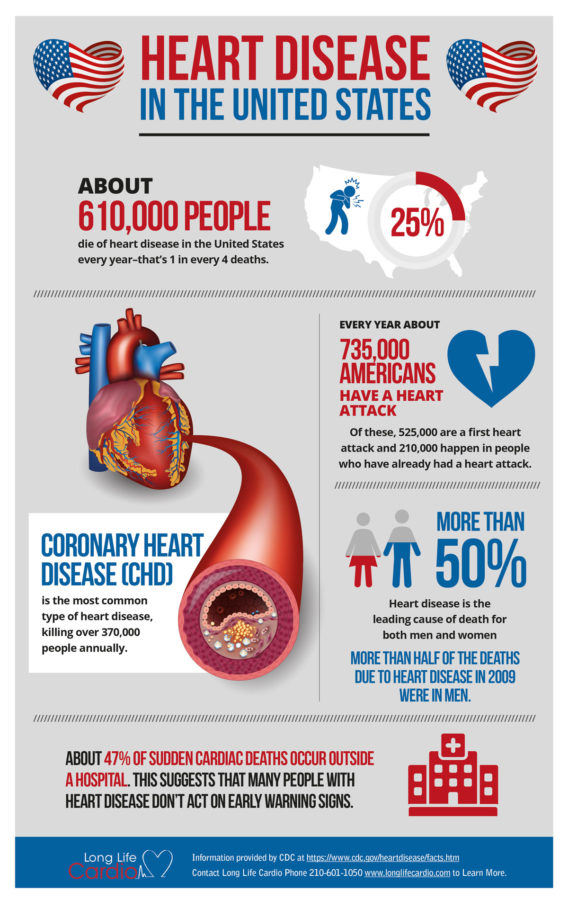
Cardiovascular disease is still the No 1 cause of death in the US. In fact, Ischaemic Heart Disease (IHD) is the top killer in the world. Even in countries such as India, where diseases such as tuberculosis, pneumonia, and malaria were once the cause of most deaths.
CVD disease is generally considered to be controlled firstly by lifestyle factors such as smoking, exercise, healthy diet, and weight control. Then, physical factors such as cholesterol, blood pressure, and glucose control also enter the mix though these are most often seen as a result of lifestyle issues.
The mortality for males and females in the United States declined from 1979 to 2015 (Chart 12-19). In 2015, 2,712,630 resident deaths were registered in the United States, and 10 leading causes accounted for 74.2% of all registered deaths. The 10 leading causes of death were heart disease (No. 1), cancer (No. 2), chronic lower respiratory diseases (No. 3), unintentional injuries (No. 4), stroke (No. 5), Alzheimer disease (No. 6), DM (No. 7), influenza and pneumonia (No. 8), kidney disease (No. 9), and suicide (No. 10).
CHD (43.8%) is the leading cause of deaths attributable to CVD in the United States, followed by stroke (16.8%), high BP (9.4%), HF (9.0%), diseases of the arteries (3.1%), and other CVDs (17.9%).
This information is quoted from the American Heart Association Journal “Circulation” 2018 Update
CVD is still the biggest killer in the US and worldwide and is directly linked to lifestyle. The problem is that once the problem is bad enough to be diagnosed, the lifestyle problems are thoroughly ingrained. Breaking that chain is vital to cracking this problem. This means it has never been more important than now to have a quick and easy screening tool to catch CVD in its early stages. Such devices have the added benefit that they prompt patients to make lifestyle changes before such changes become too difficult. The longer a person keeps going being overweight and under-exercising the harder the path back to health is. For many people, the impetus to change comes too late and they simply cannot make the journey. Long Life Cardio is proud to be the supplier of two devices that provide this life-saving service. Learn more about the Max Pulse here.